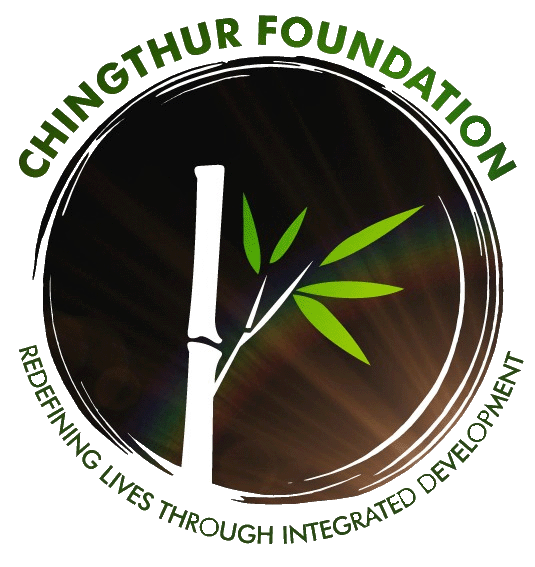SUSTAINABLE LIVELIHOOD
OVERVIEW
Chingthur Foundation is committed to promoting sustainable livelihoods by equipping communities with the knowledge, skills, and resources needed to improve their economic well-being while preserving the environment. Our initiatives are currently being implemented in Kingniu Village, serving as a model for other communities to follow. Our sustainable livelihood programs are divided into three main categories: Farm, Off-farm, and Non-farm activities.
ON FARM INITIATIVES
TRADITIONAL GRAIN FARMING
With the project starting at Kingniu Village in 2022, the Chingthur Foundation is revitalizing traditional grain farming to enhance economic growth and improve nutrition. Our focus is on indigenous grains, particularly millet, which has been a staple in the region for generations. By reintroducing and promoting these resilient and nutritious grains, we aim to boost agricultural productivity and ensure food security. This initiative not only preserves cultural heritage but also encourages sustainable farming practices. Farmers are provided with training and resources to cultivate these grains using eco-friendly methods, ensuring that the agricultural practices are both productive and sustainable.
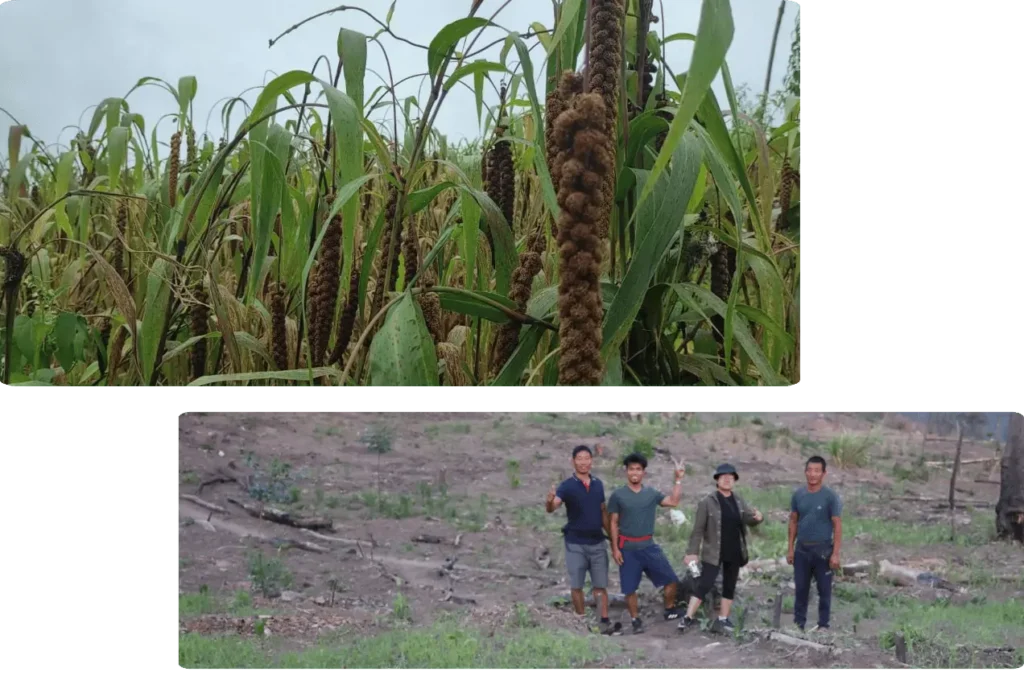
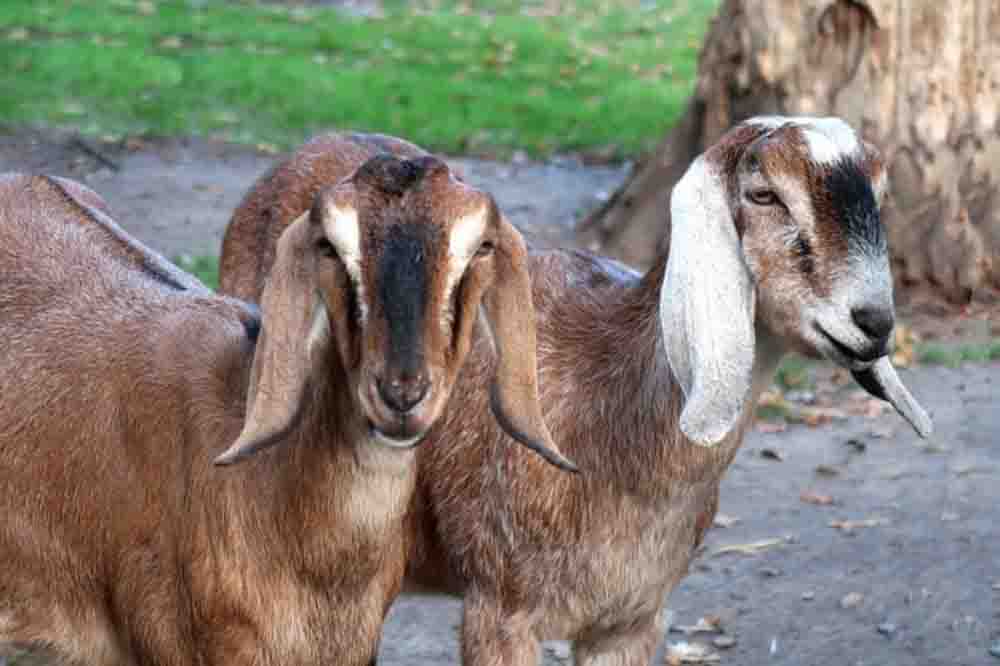
REARING OF DOMESTICATED ANIMALS
In addition to crop cultivation, rearing domesticated animals is a key component of our on-farm initiatives in Kingniu Village. This program aims to provide a reliable source of income and nutrition for the community. Livestock such as poultry, goats, and pigs are being reared under sustainable and humane conditions. The foundation offers training in best practices for animal husbandry, veterinary care, and resource management to ensure that livestock farming contributes to the overall well-being of the community. This initiative not only supports economic development but also enhances the nutritional status of the villagers by providing access to high-quality protein sources.
AGROFOREST TRAINING CENTER
The Agro-Forestry Training Centre, located on 16 acres in Karagaon, Karbi Anglong, Assam, near Dimapur, promotes sustainable agriculture and environmental conservation. It offers practical training in agroforestry, focusing on integrated organic farming, which combines crop cultivation, livestock rearing, and forest management to enhance soil fertility, biodiversity, and reduce chemical dependency.
The center is staffed by experts who provide hands-on training in soil health, pest management, livestock rearing, water conservation, and organic crop production. These training programs are available on-site, ensuring widespread access to sustainable farming knowledge.
The center aims to improve food security, livelihoods, and environmental sustainability while increasing resilience to climate change. It envisions a future where sustainable farming practices are standard, leading to prosperous and environmentally sound communities in the region.
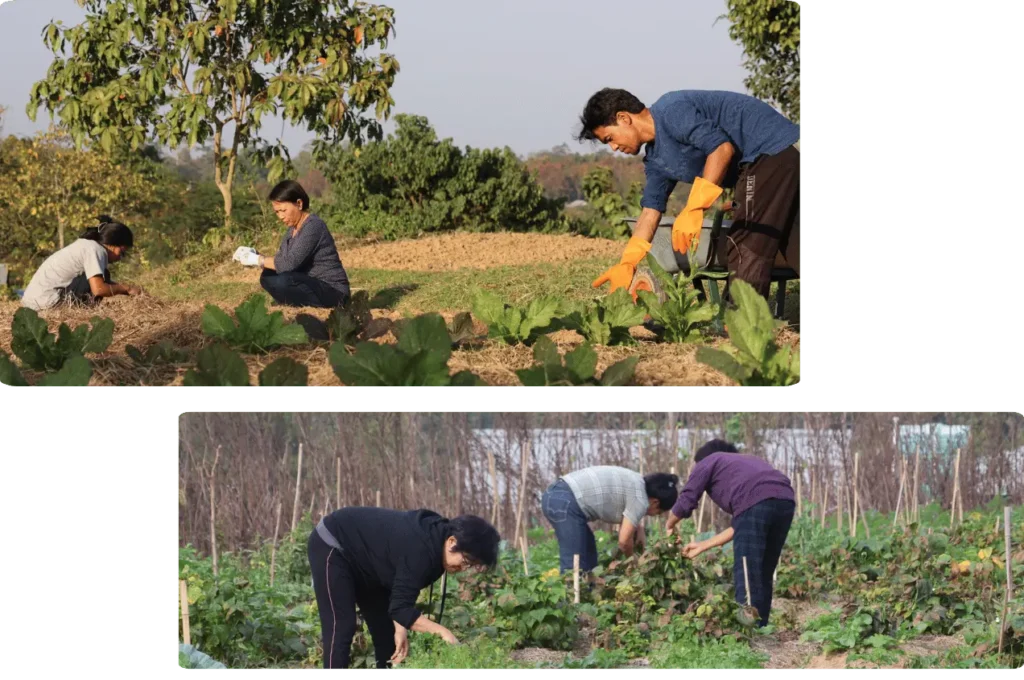
OFF FARM DEVELOPMENT
Chingthur Foundation places a strong emphasis on off-farm development to enhance the livelihood options and overall well-being of different communities. Our initiatives focus on livestock management, demonstration projects, and various other programs designed to provide sustainable and practical solutions for the villagers.
LIVESTOCK MANAGEMENT
Besides the Agroforest training center, Chingthur Foundation has introduced several livestock management programs to the people of Kingniu Village. These programs include training on best practices for raising domesticated animals such as poultry, goats, and cattle. Our experts provide guidance on animal health, nutrition, breeding, and housing, ensuring that villagers can maintain healthy and productive livestock. These efforts not only improve food security but also offer an additional source of income for the families involved.
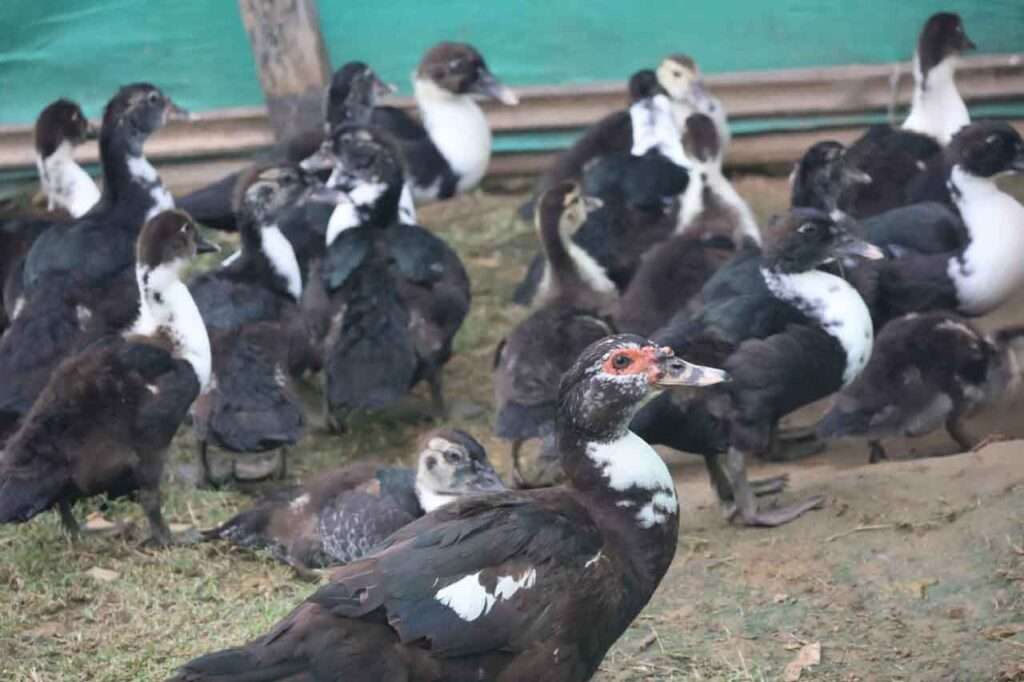
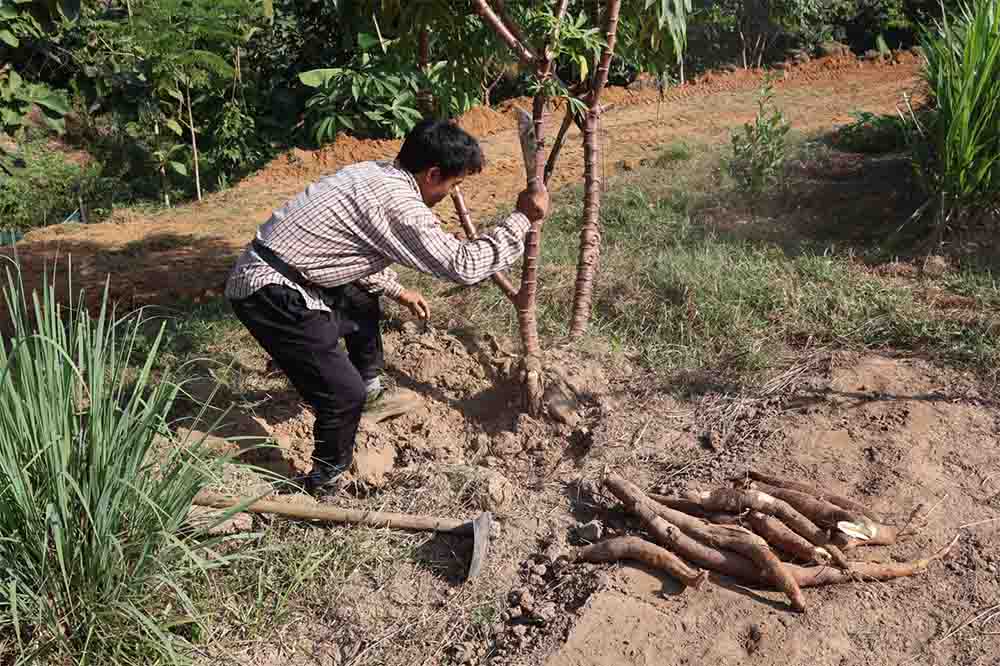
DEMONSTRATION PROJECTS
We have established demonstration projects to showcase innovative and sustainable agricultural techniques. These projects serve as practical examples that villagers can observe and learn from. For instance, we have a demonstration plot for integrated farming systems, where crops and livestock are managed together to maximize productivity and sustainability. This plot highlights the benefits of practices such as crop rotation, intercropping, and the use of organic fertilizers, encouraging villagers to adopt these methods in their own farming activities.
NON FARM PROJECTS
DEDICATION OF MILLET DEHUSKING MACHINES AT KINGNIU VILLAGE
On August 26, 2024, Chingthur Foundation, in collaboration with NABARD, organized a significant event at Kingniu Village, Noklak District, Nagaland, as part of the ‘Revival of Indigenous Grain – Millet’ initiative. The event marked the dedication of two millet de-husking machines, generously funded by NABARD, aimed at enhancing the processing capabilities and supporting the livelihood of the local community.
The program was led by Mr. P. Mushiu Khiamniungan, who highlighted the crucial role of revitalizing indigenous grains like millet for sustainable agriculture and food security. The dedication ceremony was solemnized by the village Pastor, who offered prayers for the successful utilization of the machines.
The event was attended by members of the Village Council and church leaders, whose presence underscored the community’s commitment to embracing traditional agricultural practices while incorporating modern technology. The millet de-husking machines are expected to significantly reduce manual labor, improve efficiency, and contribute to the overall success of the millet revival initiative.
Chingthur Foundation expresses its deep appreciation to NABARD for their generous funding of these machines. Their support has been instrumental in empowering the local community and advancing the Foundation’s mission of promoting sustainable agricultural practices in the region.
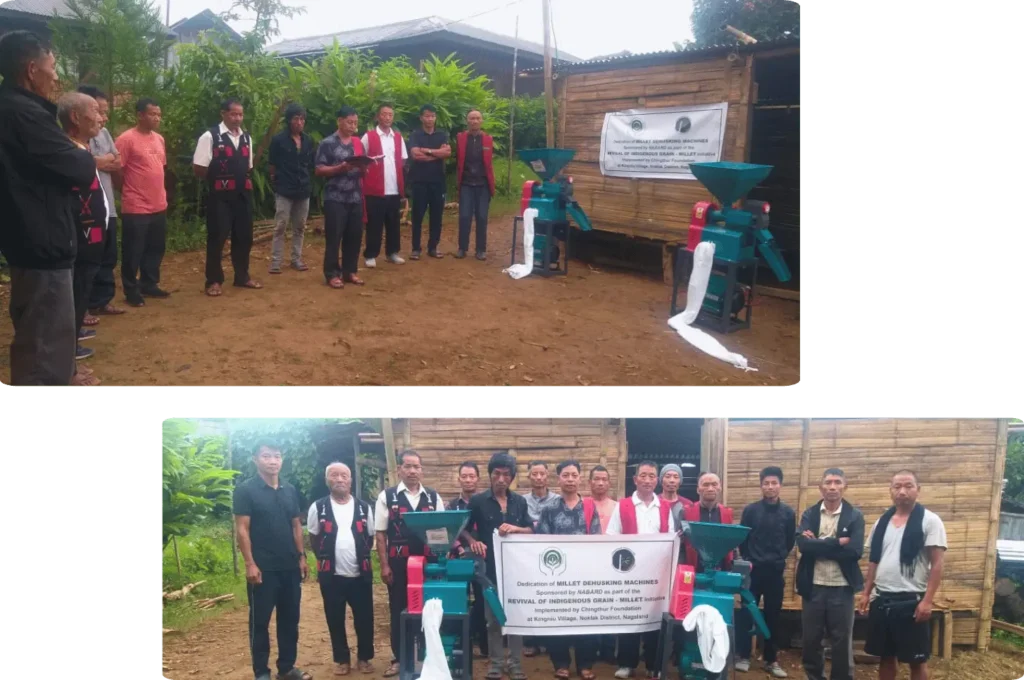
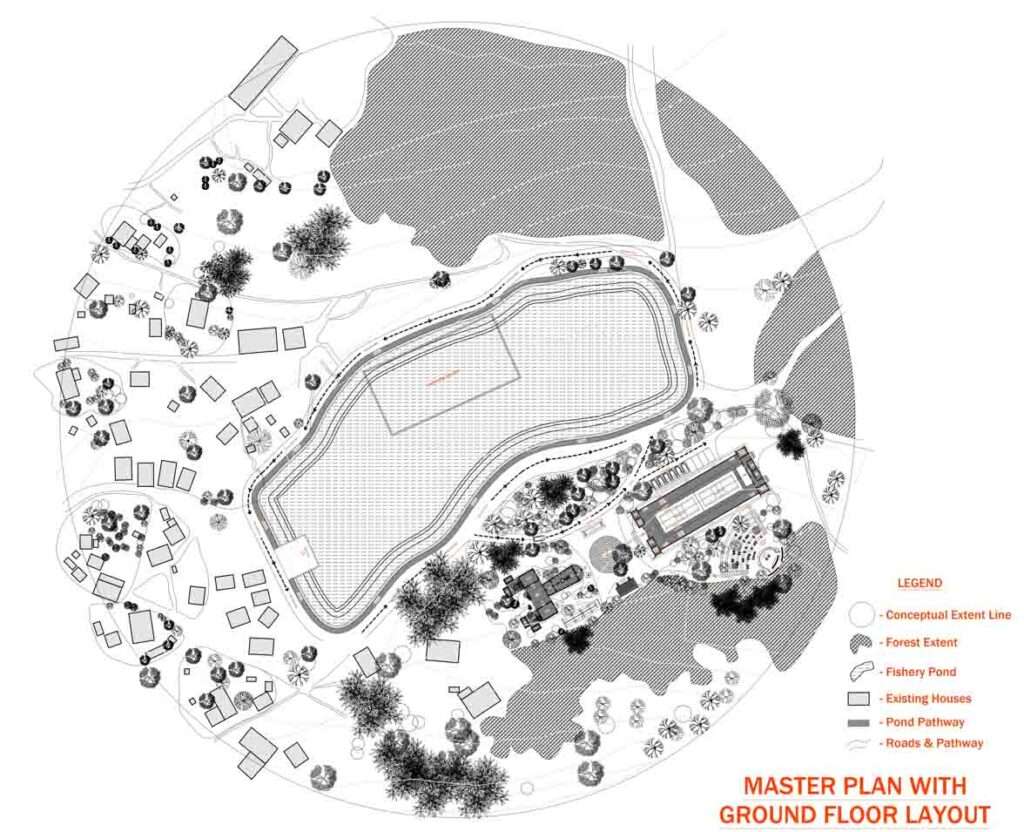
COMPREHENSIVE MASTER PLAN DEVELOPMENT (COMMENCED 2023)
This project aims for the holistic development of Kingniu Village, focusing on biodiversity conservation, sustainable tribal livelihoods, and agro-ecotourism. It integrates land use planning, conservation strategies, sustainable agriculture, and responsible tourism to enhance the economic prospects of the tribal community while preserving the local environment. Additionally, this exercise is intended to serve as a blueprint that can be replicated in other parts of the state and beyond, promoting sustainable development on a wider scale.
REJUVENATION OF CANE AND BAMBOO CRAFT TRAINING (COMMENCED 2022)
With the initiative commencing in 2022, several batches have been trained in cane and bamboo crafts. Marketing preparations are underway, aiming to enhance livelihoods by providing new economic opportunities for the comm
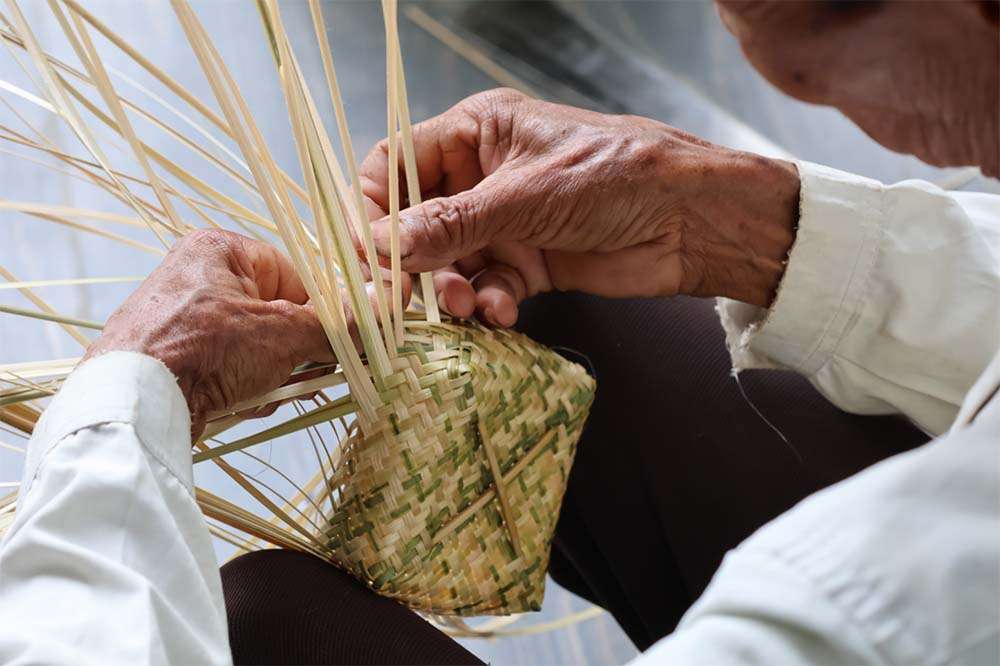
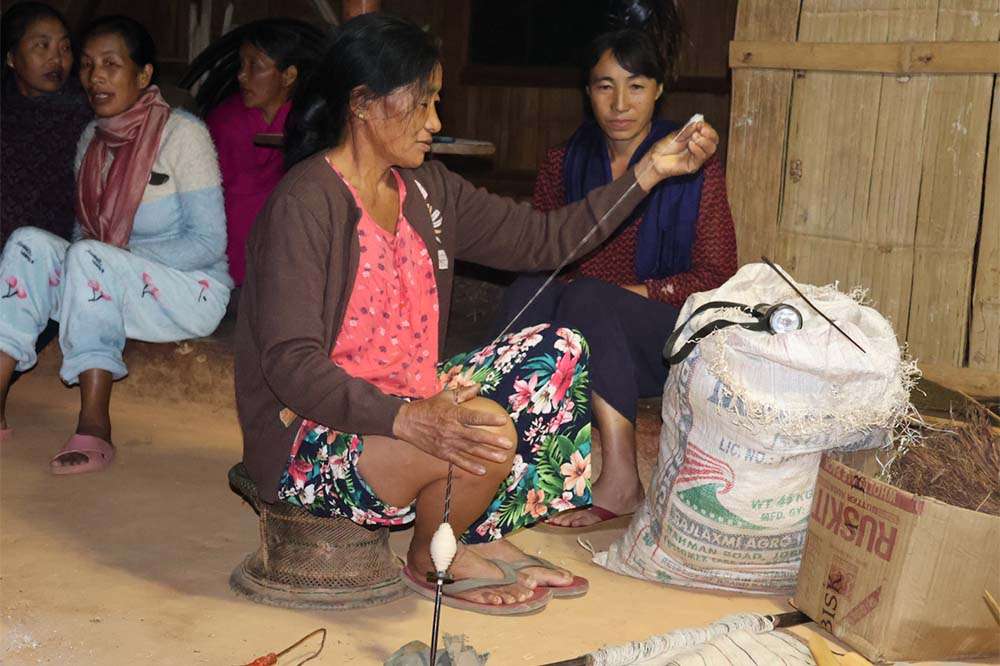
REVITALIZATION OF NATURAL FIBER WEAVING (COMMENCED 2022)
Separate from the cane and bamboo crafts, multiple batches of community members have also been trained in natural fibre weaving. Efforts to market these products are in progress, aimed at creating sustainable economic opportunities for local artisans.
